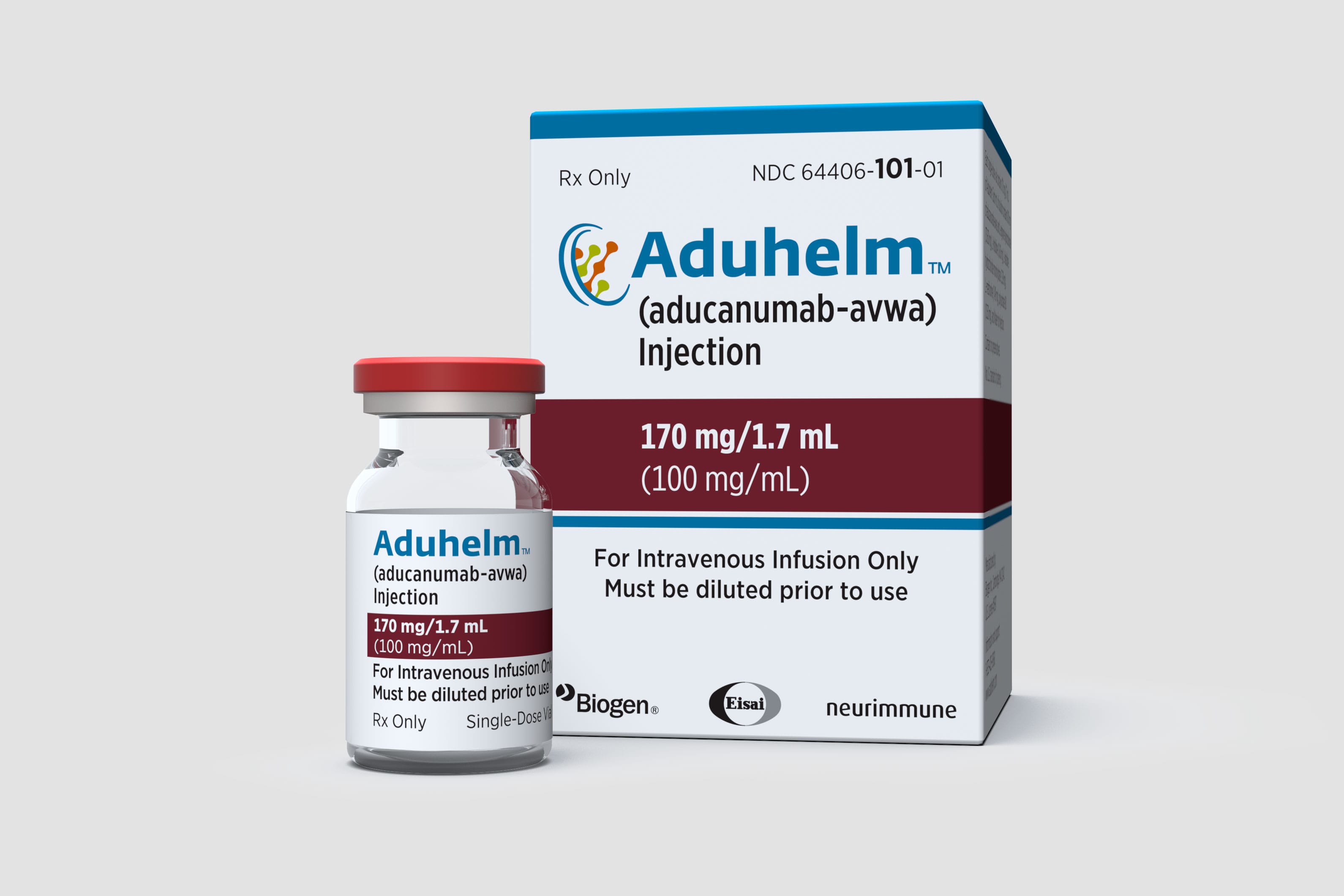Biogen’s controversial Alzheimer’s drug generates $2 million sales in first few weeks after approval

Aduhelm by Biogen
Source: Biogen
Biogen‘s Alzheimer’s drug, Adhulem, generated $2 million in revenue in the first few weeks of its approval, the company said Thursday in releasing its second-quarter earnings along with an open letter about the controversial drug.
Biogen hiked its revenue guidance for the year, saying it expects total sales of $10.65 billion to $10.85 billion this year. That’s up from its previous estimates of $10.45 billion to $10.75 billion. The new forecast assumes “modest” revenue from Adhulem in 2021, ramping up thereafter, the company said.
Here’s how Biogen did during the three months ended June 30 compared with what Wall Street expected, according to average estimates compiled by Refinitiv:
- Adjusted EPS: $5.68 vs $4.54 expected
- Revenue: $2.78 billion vs $2.61 billion expected
Shares of the company rose slightly in early trading.
Adhulem was approved by the Food and Drug Administration on June 7. The drug, scientifically known as aducanumab, offers new hope to friends and families of patients living with the disease and is expected to generate billions of dollars in revenue for the company.
Its approval has since been called into question, however, and the head of the FDA is now calling for a federal investigation looking into interactions between agency staff and the biotech company.
Biogen’s top research chief, Dr. Al Sandrock, defended the drug in an open letter released alongside the company’s earnings Thursday, saying its approval has been subject to “extensive misinformation and misunderstanding.”
He said it is “normal” for scientists and clinicians to discuss and debate data from experiments and clinical trials, but added those discussions have taken a turn “outside the boundaries of legitimate scientific deliberation.”
“We welcome a formal review into the interactions between the FDA and Biogen on the path to the approval of aducanumab,” Sandrock said. “A better understanding of the facts is good for everyone involved to assure confidence in both the therapy and the process by which it was approved as we prioritize the issues that affect patients.”




